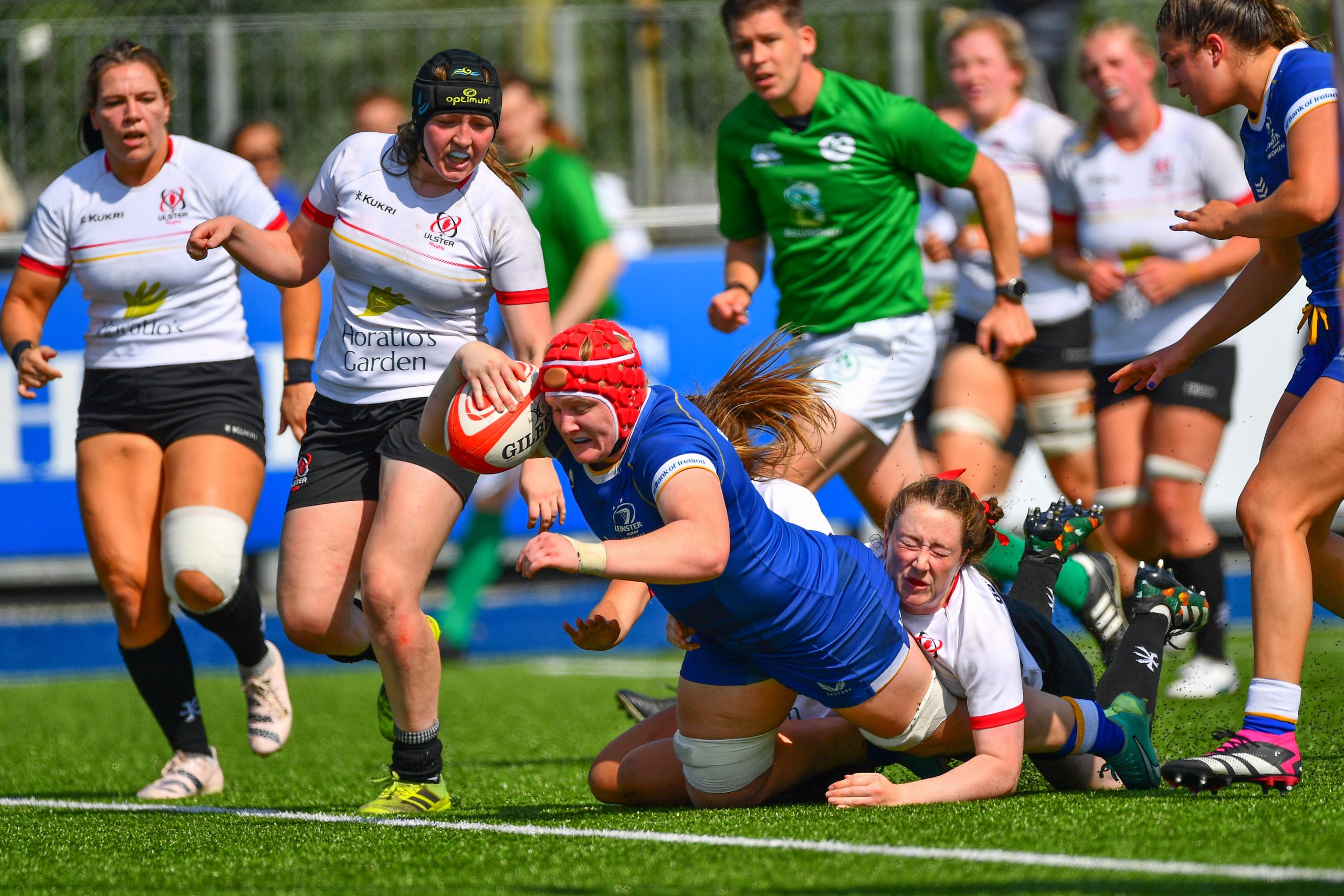In the dynamic arena of rugby, split-second decisions can determine victory or defeat. Every player’s ability to make sound judgments amidst the chaos of the field is paramount. However, mastering decision-making is not innate; it requires deliberate practice and strategic training. In this article, we delve into how rugby training can significantly enhance your decision-making abilities on the field, offering practical insights and techniques to elevate your game.
Understanding the Dynamics of Decision-Making in Rugby
Decision-making in rugby is a multifaceted process shaped by a dynamic interplay of cognitive, physical, and situational factors. From the moment a player receives possession of the ball to the final whistle, every action on the field is underpinned by a series of rapid-fire decisions that influence the course of the game.
Cognitive Processing:
At its core, decision-making in rugby involves cognitive processing, wherein players must analyze information, assess options, and choose the most appropriate course of action. This cognitive aspect encompasses various cognitive skills, including attention, perception, memory, and problem-solving. Players must remain vigilant to the ever-changing dynamics of the game, constantly scanning the field for openings, anticipating opponents’ moves, and strategizing their next move.
Physical Execution:
While decision-making in rugby is predominantly a cognitive process, it is intrinsically linked to physical execution. The decisions made by players manifest in their movements, passes, tackles, and strategic positioning on the field. Thus, effective decision-making requires not only mental agility but also physical prowess and technical proficiency. Players must be able to translate their cognitive assessments into precise and well-timed actions, executing their chosen strategy with speed and accuracy.

Situational Awareness:
A crucial aspect of decision-making in rugby is situational awareness, which involves understanding the context of the game and adapting to changing circumstances in real-time. Players must be attuned to factors such as the scoreline, time remaining, field position, weather conditions, and the tactical approach of both teams. This heightened awareness enables players to make informed decisions that maximize their team’s chances of success while minimizing risks and vulnerabilities.
Pressure and Time Constraints:
One of the defining features of decision-making in rugby is the presence of pressure and time constraints. Players often find themselves under immense pressure to make split-second decisions amidst the chaos and intensity of the game. Whether it’s evading a tackle, executing a strategic kick, or orchestrating a counter-attack, players must make quick yet calculated decisions under duress. Moreover, the limited time available for decision-making adds an additional layer of complexity, requiring players to prioritize options and act decisively.
Uncertainty and Adaptability:
Rugby is inherently unpredictable, with the potential for unforeseen events to disrupt even the best-laid plans. Decision-making in such an environment is characterized by uncertainty, as players must navigate through a maze of potential outcomes and unforeseen variables. As such, adaptability is a critical trait for effective decision-making in rugby. Players must be flexible in their approach, ready to adjust their tactics on the fly and improvise creative solutions in response to changing circumstances.
Team Dynamics:
Decision-making in rugby is not limited to individual players but is deeply intertwined with team dynamics and collaboration. Effective decision-making requires seamless communication, trust, and coordination among teammates, as they work together to execute strategic plays and capitalize on opportunities. Each player’s decision-making contributes to the collective intelligence of the team, shaping the overall strategy and momentum of the game.
In essence, decision-making in rugby is a dynamic and multifaceted process shaped by cognitive, physical, situational, and interpersonal factors. Mastering this skill requires a combination of cognitive agility, technical proficiency, situational awareness, adaptability, and teamwork. By understanding the complex dynamics of decision-making in rugby, players can hone their skills and elevate their performance on the field.
Analyzing Decision-Making Challenges on the Field
Decision-making in rugby is often challenged by high-pressure situations, limited time frames, and unpredictable variables. From choosing the optimal passing route to deciding whether to tackle or evade an opponent, players face a constant stream of decisions that can influence the outcome of the game. As such, the ability to make quick yet effective decisions is a hallmark of top-tier rugby players.
Leveraging Rugby Training for Enhanced Decision-Making
Rugby training serves as a crucible for refining decision-making skills, offering a structured environment for players to develop their cognitive and physical capabilities. Through targeted drills, simulations, and strategic guidance, players can enhance their decision-making prowess and gain a competitive edge on the field.
1. Simulated Game Scenarios:
Simulating game scenarios during training sessions is a highly effective way to replicate the pressure and intensity of real-game situations. By creating scenarios that mirror actual match conditions, players can practice making decisions under duress and refine their response strategies. Websites like RugbyIQ offer a wealth of resources for designing customized training modules tailored to specific decision-making challenges.

2. Video Analysis and Feedback:
Utilizing video analysis tools allows players to review their performance and decision-making in real-time. Platforms like Hudl provide comprehensive video analysis features, enabling coaches to dissect gameplay footage and provide targeted feedback to players. By identifying areas for improvement and analyzing decision-making patterns, players can refine their skills and make more informed choices on the field.
3. Cognitive Training Exercises:
Incorporating cognitive training exercises into rugby training regimes can enhance players’ mental acuity and decision-making abilities. Activities such as reaction drills, pattern recognition tasks, and decision-making simulations help sharpen cognitive skills and improve decision-making speed. Websites like CogniFit offer scientifically backed cognitive training programs designed to enhance cognitive performance and decision-making skills.
4. Role-Playing and Game Strategy Workshops:
Conducting role-playing exercises and game strategy workshops allows players to gain a deeper understanding of tactical decision-making and team dynamics. By assuming different roles within simulated game scenarios, players can develop empathy for teammates’ perspectives and enhance their strategic thinking abilities. Websites like The Rugby Site offer a wealth of tactical resources and training materials for coaches and players alike.
5. Exploring Pressure Situational Drills in Rugby Training
Pressure situational drills are an integral component of rugby training, designed to simulate high-pressure game scenarios and cultivate mental resilience and composure in players. These drills replicate the intensity and unpredictability of real-game situations, challenging players to make split-second decisions under duress while maintaining focus and execution.
Purpose of Pressure Situational Drills:
The primary goal of pressure situational drills is to prepare players for the rigors of competitive play, where the outcome of the game often hinges on critical moments of decision-making under pressure. By subjecting players to simulated pressure scenarios in a controlled training environment, coaches aim to build players’ confidence, decision-making speed, and ability to perform under stress.
Types of Pressure Situational Drills:
Pressure situational drills can take various forms, each targeting specific aspects of decision-making and game management. Some common types of pressure situational drills include:
- Last-Minute Scenarios:
- In these drills, players are placed in simulated last-minute game situations where the scoreline is close, and the outcome hangs in the balance. Players must make critical decisions under immense pressure, such as whether to kick for territory, attempt a last-ditch try, or opt for a drop goal to secure victory.
- Penalty Shootouts:
- Penalty shootouts simulate high-pressure kicking situations, where players must attempt to score points from various angles and distances under intense scrutiny. These drills not only test players’ kicking accuracy but also their mental fortitude and ability to perform under pressure.
- Turnover Scenarios:
- Turnover scenarios simulate sudden changes in possession, placing players in high-pressure situations where they must quickly transition from defense to attack or vice versa. Players must make rapid decisions on whether to counter-attack, retain possession, or initiate a defensive structure to regain control of the game.
- Red Zone Defense:
- Red zone defense drills focus on defending the try line under pressure, with players tasked with preventing the opposition from scoring a try in critical areas of the field. These drills test players’ defensive organization, communication, and decision-making under pressure, as they strive to repel relentless attacks from the opposition.
- Pressure Goal Kicks:
- Pressure goal kick drills require players to attempt goal kicks from challenging positions on the field, with the outcome of the game hanging in the balance. Players must overcome the pressure of the moment and execute their kicks with precision and confidence, knowing that a successful kick could be the difference between victory and defeat.
Key Benefits of Pressure Situational Drills:
Pressure situational drills offer a range of benefits for players and teams, including:
- Building Mental Resilience: By exposing players to high-pressure situations in a controlled environment, pressure situational drills help build mental resilience and composure, enabling players to thrive under stress during actual games.
- Improving Decision-Making: These drills sharpen players’ decision-making skills under pressure, helping them make quick yet calculated choices amidst the chaos of competitive play.
- Enhancing Team Cohesion: Pressure situational drills foster teamwork and communication, as players must work together cohesively to navigate through high-pressure scenarios and execute strategic plays.
- Developing Confidence: Successfully navigating pressure situational drills instills confidence in players, equipping them with the belief that they can rise to the occasion and perform under pressure when it matters most.
Implementing Pressure Situational Drills in Training:
To effectively implement pressure situational drills in training, coaches should:
- Tailor Drills to Specific Game Scenarios: Design drills that replicate common pressure situations encountered during actual games, ensuring relevance and applicability to players’ experiences.
- Provide Feedback and Support: Offer constructive feedback and support to players during drills, helping them learn from mistakes and build confidence in their decision-making abilities.
- Gradually Increase Intensity: Gradually ramp up the intensity of pressure situational drills over time, progressively challenging players to perform under increasingly high-pressure conditions.
- Encourage a Growth Mindset: Foster a growth mindset among players, emphasizing that mistakes are opportunities for learning and improvement rather than failures.
By incorporating pressure situational drills into their training regimen, rugby teams can equip players with the mental resilience, decision-making skills, and confidence needed to excel in high-pressure game situations and ultimately achieve success on the field.
Decision-Making
In the fast-paced world of rugby, mastering decision-making is a fundamental skill that can make all the difference between triumph and defeat. By leveraging the resources and techniques offered by rugby training, players can enhance their cognitive abilities, sharpen their strategic acumen, and ultimately elevate their game to new heights. Through simulated scenarios, video analysis, cognitive training, strategic workshops, and pressure situational drills, players can unlock their full potential and become formidable decision-makers on the field.

